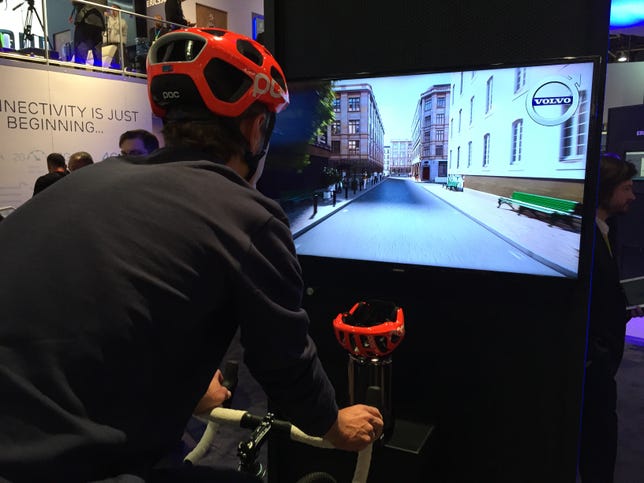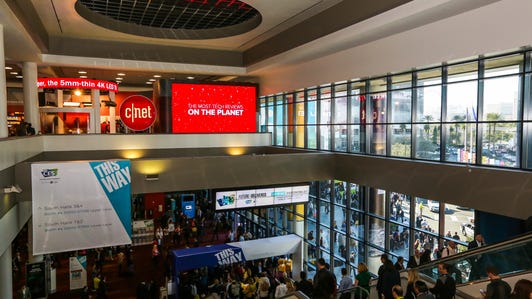LAS VEGAS — Even as the wireless industry works through its deployment of higher-speed 4G wireless networks, Ericsson CEO Hans Vestberg has his eye on the next “G.”

Jessica Dolcourt/CNET
Vestberg shared his vision of 5G, a network that will not only be significantly faster, but much smarter. It’s that network intelligence that will better manage the burgeoning trend of the Internet of Things, or the concept that every object can connect to the Internet and talk to each other. Vestberg said he believes this idea can change lives for the better.
“We are seeing the biggest transformation ahead of us,” Vestberg said in an interview.
Ericsson, which Gartner pegs as the world’s largest telecom gear vendor, benefits from more wireless connections, and Vestberg has been talking about his notion of a connected society for years. Though he doesn’t see 5G coming until 2020, Ericsson is already working on the technology.
The move to 4G has been all about speed, but the upgrade to 5G, according to Vestberg, will be more expansive. He said he sees service-aware networks springing up, or networks that are smart enough to understand the situation and context around the connected device.
He gave as an example a person sitting in a self-driving car. A 5G network will have to be smart enough to know that the person in the car will need a higher connection speed going into her smartphone, while the self-driving car will need a connection with lower latency, which speeds up its response time. Or the network will recognize that a device is running low on power and will reduce the number of radio pings to conserve energy.


Roger Cheng/CNET
That lower latency could also provide the wireless backbone for a top surgeon in Paris to remotely perform brain surgery in Russia, he said.
By 2020, 85 percent of the world will have at least a 3G connection, while 60 percent of the world will be on 4G. He said the key to a fully connected society is getting everyone up and running on a consistent network.
The Ericsson booth had a number of examples of novel connected devices. The company partnered with Poc, a Swedish sports gear manufacturer, to create a connected bicycle helmet. Connected cars can sense the bike and automatically hit the brakes to avoid a collision.


Now playing:
Watch this:
Inside one of the world’s first 5G wireless tests
1:52
It’s still in the early stages, and the only car manufacturer involved with this project is Volvo.
But this system only works if every car is connected, which is slowly becoming a reality. Subaru said yesterday that it would bring a 4G LTE connection to select 2016 model cars, following similar deployments by General Motors and Audi. The Internet of Things has been a big topic at the Consumer Electronics Show, with Samsung pledging to connect everything it sells to the Internet within five years.
Once the connections are in place, that’s when the fun starts.
“People will come up with ways to innovate,” Vestberg said. “It’s a total paradigm shift.”
CES 2015 Day 1: The highlights (pictures)









